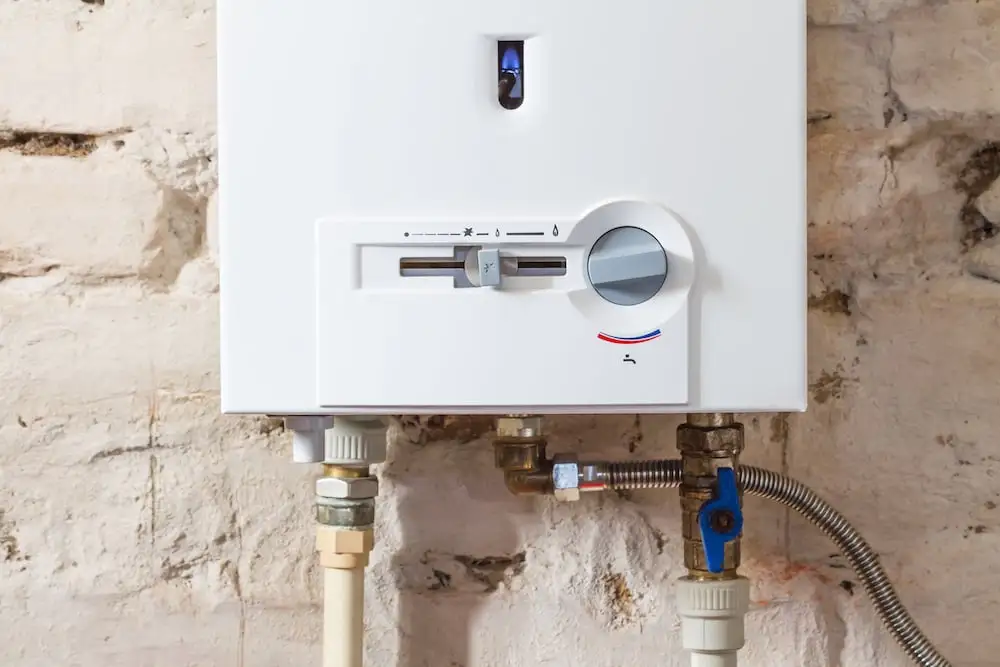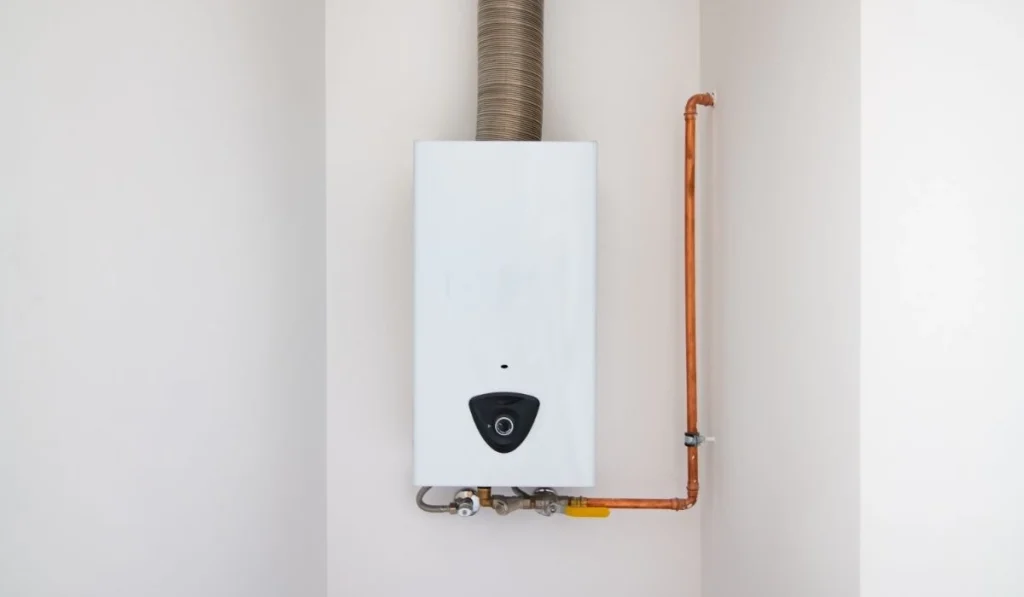Living in a cold climate like Alhambra, CA, comes with its own set of challenges, particularly when it comes to protecting household appliances from freezing temperatures. One such essential appliance is the water heater, which can be susceptible to freezing if not properly maintained. In this guide, The Pro Plumbing will help you to explore seven practical tips to help prevent water heaters freezing in cold climates. By implementing these measures, you can ensure a reliable supply of hot water throughout the winter months and safeguard your water heater from potential damage.
Insulate the Water Heater and Pipes
One effective way to prevent water heater freezing is by insulating both the water heater tank and the associated pipes. Insulation acts as a barrier, reducing the heat loss and protecting the unit from extreme cold. Start by wrapping an insulation blanket around the water heater tank, ensuring all exposed surfaces are covered. Next, insulate the hot and cold water pipes using foam pipe insulation sleeves. This extra layer of insulation will help maintain higher temperatures, reducing the risk of freezing. Make sure to pay extra attention to any exposed pipes in unheated areas such as basements or crawl spaces.
Keep the Temperature Above Freezing
Maintaining a minimum temperature setting on your water heater can help prevent freezing. Most water heaters have a temperature control dial, usually set between 120-140 degrees Fahrenheit. During colder months, it’s advisable to keep the temperature setting closer to the higher end of the range. This ensures that the water inside the tank remains warm enough to resist freezing. However, be cautious not to set the temperature too high, as it can pose scalding risks and increase energy consumption.

Allow Adequate Air Circulation
Ensuring proper air circulation around the water heater is crucial for preventing freezing. Clear any obstructions or clutter in the vicinity of the water heater, allowing sufficient space for air to flow freely. Avoid placing items directly on top or around the unit, as this can impede proper ventilation and lead to condensation, which may contribute to freezing. Additionally, if your water heater is located in an enclosed area, consider installing a small ventilation fan to enhance air circulation and prevent the buildup of cold air pockets.
Install a Frost-Proof Spigot
A frost-proof spigot, also known as a freeze-proof faucet, can be a valuable addition to prevent water heater freezing. This type of outdoor faucet is designed with a long stem that extends inside the heated portion of your home. By shutting off the water supply and draining residual water from the spigot when not in use, it prevents water from sitting in the exposed portion of the pipe and freezing during cold spells. Installing a frost-proof spigot provides an extra layer of protection, especially if you have outdoor water connections that are prone to freezing.
Maintain Adequate Heat in the Surrounding Areas
The temperature of the space surrounding your water heater plays a significant role in preventing freezing. Ensure that the area where your water heater is located remains adequately heated during cold weather. Insulate the walls, floors, and ceiling of the room to reduce heat loss. If the water heater is in a garage or basement, consider using a space heater or installing additional insulation to maintain a stable temperature. Remember, the warmer the surrounding area, the lower the chances of water heater freezing.
Monitor and Fix Leaks Promptly
Leaky pipes or valves can exacerbate the risk of water heaters freezing. Even small drips can cause water to accumulate and freeze, leading to potential damage. Regularly inspect your water heater system for leaks, paying close attention to the connections, valves, and pipes. If you notice any signs of leaks, promptly repair or replace the affected components. Taking quick action to address leaks not only prevents freezing but also helps conserve water and reduces the likelihood of more significant plumbing issues down the line.
Drain the Water Heater When Not in Use
If you plan on leaving your property unoccupied during the winter or if you have an extended period of inactivity, draining the water heater is a recommended precautionary measure. Before draining, turn off the power supply or gas valve and let the water heater cool down. Attach a hose to the drain valve and direct the water to a suitable drainage area. Completely emptying the tank eliminates the risk of freezing since there will be no water present. Upon returning or when regular usage resumes, refill the tank and allow it to reach the desired temperature.
Keep the Water Heater Running Regularly
Regular usage of the water heater helps maintain warmer temperatures inside the tank and pipes, reducing the likelihood of freezing. If you have a secondary water heater or a vacation property, make sure to periodically run hot water through the system to prevent stagnation. Additionally, consider setting up a recurring schedule for tasks that require hot water, such as laundry or dishwashing, to ensure consistent use and circulation of water throughout the system.
Use Heat Tape for Added Protection
Heat tape, also known as heating cable, can provide an extra layer of insulation and warmth to vulnerable sections of the water heater and pipes. Wrap the heat tape around exposed pipes, particularly those located in unheated areas or susceptible to freezing. The tape is equipped with a built-in thermostat that activates when temperatures drop, helping to maintain adequate warmth and prevent freezing. Follow the manufacturer’s instructions for proper installation and ensure the tape is in good condition, replacing it if any signs of wear or damage are observed.
Schedule Professional Maintenance and Inspections
Regular professional maintenance for your water heater thermostat is vital to keep your water heater in optimal condition and prevent freezing. Hire a qualified plumber to conduct an annual maintenance check, which includes inspecting the heating elements, valves, and overall functionality of the system. The plumber can also identify and address any potential issues or vulnerabilities that may lead to freezing. Professional maintenance ensures that your water heater operates efficiently, prolongs its lifespan, and provides you with peace of mind throughout the winter season.

Here are some questions which may help you further:
How do I protect my hot water heater from the cold?
- You can protect your hot water heater from cold by insulating the tank and pipes, maintaining a minimum temperature setting, ensuring proper air circulation, and addressing any leaks or issues promptly.
How do I keep my water heater warm in the winter?
- To keep your water heater warm in the winter, insulate the tank and pipes, set the temperature appropriately, maintain a heated environment around the water heater, and consider using heat tape or a space heater if needed.
How do I keep my water heater pipes from freezing?
- To keep your water heater pipes from freezing, insulate them using foam pipe insulation sleeves, ensure proper air circulation around the pipes, and maintain adequate heat in the surrounding areas.
Can a water heater freeze in cold weather?
- Yes, a water heater can freeze in cold weather if it is not properly insulated, the temperature is set too low, or there are significant leaks or plumbing issues that cause water to stagnate in the pipes.
Conclusion
Protecting your water heater from freezing in cold climates is essential for uninterrupted hot water supply and avoiding costly repairs. By insulating the water heater and pipes, maintaining adequate temperatures, ensuring proper air circulation, and addressing leaks promptly, you can significantly reduce the risk of freezing. Installing a frost-proof spigot and draining the water heater when not in use further enhances protection. Remember to monitor the surrounding areas for heat maintenance and implement these preventive measures to safeguard your water heater throughout the winter season in Alhambra, CA.

